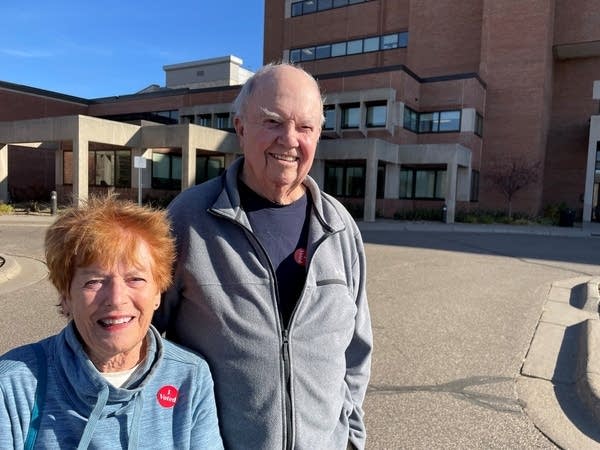Hello Election Day, goodbye attack ads

Go Deeper.
Create an account or log in to save stories.
Like this?
Thanks for liking this story! We have added it to a list of your favorite stories.
If it seems the political ads on TV this year have been particularly bad, you may be right.
The volume of ads has been especially high, in part because of the competitive race for Congress in the 2nd District in the southern metro suburbs.
Many voters have had enough.
“I'm so sick of seeing them. It's just — how much hate people can have towards each other? —on both sides,” said Lee Miller of Stillwater outside an early voting location there.
Turn Up Your Support
MPR News helps you turn down the noise and build shared understanding. Turn up your support for this public resource and keep trusted journalism accessible to all.

“And I would say this cycle really seemed worse,” Miller said. “I mean, it's one ad against one of them and another ad against the other one.”
In the same parking lot Kelly Findlay of Afton said she too thinks the ads are getting worse and that she’s also had enough of it.
“I think that they're much more divisive and I feel like there's way too many of them and way too much money spent on them,” Findlay said.

“I mentally block them out after a while,” Kelly’s husband Peter said.
The 2nd District race features more attack ads than any of the others because that battle, between incumbent Democrat Angie Craig and Republican challenger Tyler Kistner, has attracted nearly $25 million dollars in campaign spending.
It's on track to be Minnesota's most expensive House race ever, and it’s among the most expensive House races in the country this year. Outside groups are flooding the race with more than one-and-a-half times what the candidates themselves are spending.
Sheila Krumholz tracks campaign spending as the executive director of the nonpartisan watchdog group the Center for Responsive Politics. Even though most people can’t stand the ads, Krumholz said they’re running because they can tilt the outcome of tight races.
Krumholtz said outside special interest groups bankroll most of the negative advertising, far outspending candidates themselves in more than five dozen House races this year.
“Outside group spending is very often more negative than the spending by the candidates. They're less accountable,” Krumholz said. “They can take the low road allowing the candidate to express more friendly and courteous messaging in their ads.”
Back in Stillwater outside the Washington County Government Center, Miller said he's already bracing for what's to come on TV leading up to the 2024 presidential election.
“I sort of fear what's going to happen in the next year or two, depending on what these elections are across all the states and in the federal government,” Miller said. “So it's just going to be worse, more of the same against each other at each other's throats.”
Sheila Krumholz said Miller’s concern is warranted.
“It will probably need to get worse before it gets better,” Krumholz said. “If people want change, they will need to speak up and be heard otherwise there's little political will in Congress to take action.”


